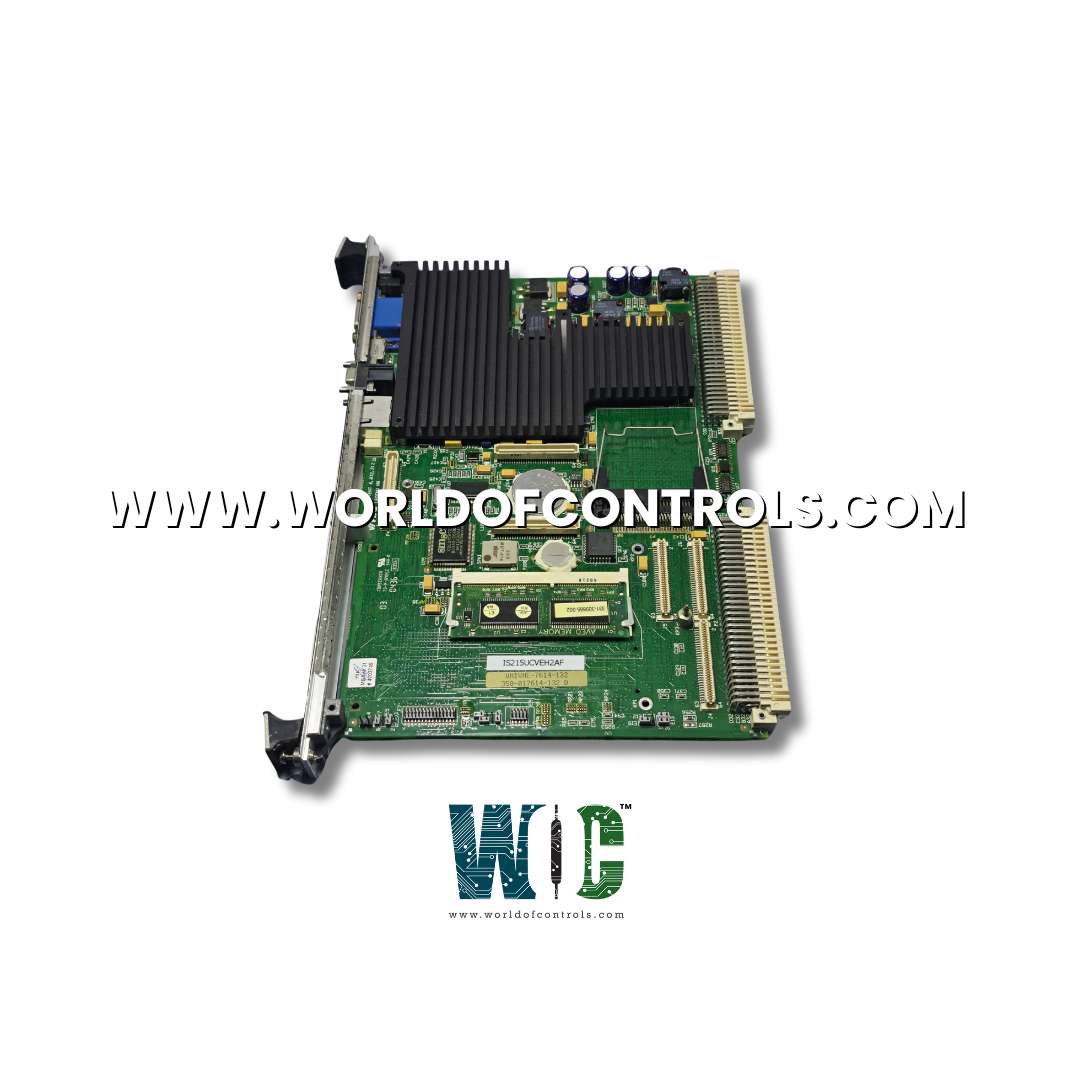SPECIFICATIONS
Part No.: IS215UCVEH2AF
Manufacturer: General Electric
Country of Manufacture: United States of America (USA)
Number of Channels: 6
Temperature: -30 to 65oC
Size: 8.6 cm Wide X 16.2 cm High
Product Type: VME Board
Availability: In Stock
Series: Mark VI
Functional Description
IS215UCVEH2AF is a VME board developed by GE. It is a part of Mark VI control system. This single-slot VME (Versa Module Eurocard) board plays a crucial role in the control system's operations. The system features an Intel Celeron microprocessor running at 300 MHz and is accompanied by 32 MB of DRAM memory. It offers flexibility with the choice between a 16 MB or 128 MB Compact Flash Module. Additionally, the system includes a 128 KB L2 cache, enhancing data access speeds. To support controller functions, an 8K battery-backed SRAM is allocated, serving as NVRAM within the system architecture.
Primary Ethernet Interface (Ethernet 1)
- The primary Ethernet interface (Ethernet 1) on this system boasts the following specifications:
- Connection Type: Utilizes twisted pair 10BaseT/100BaseTX technology with an RJ-45 connector, enabling versatile connectivity options.
- Communication Protocols: TCP/IP Protocol: Primarily employed for communication between the controller and the toolbox, ensuring seamless data exchange within the system.
- EGD Protocol: Specifically designed for communication purposes with CIMPLICITY HMI (Human-Machine Interface) and Series 90-70 PLCs (Programmable Logic Controllers), facilitating efficient and reliable data transmission.
- Ethernet Modbus Protocol: Supports communication between the controller and third-party DCS (Distributed Control Systems), offering compatibility and integration capabilities across different systems.
COM Ports
The system incorporates two micro-miniature 9-pin D connectors designated for COM ports:
- COM1: Function: Reserved specifically for diagnostic purposes, maintaining a baud rate of 9600, with data configuration set to 8 data bits, no parity, and 1 stop bit.
- COM2: Purpose: Dedicated to serial Modbus communication, supporting variable baud rates of either 9600 or 19200. This port facilitates efficient and reliable communication for Modbus-related data transactions.
Board Configuration and Connectivity
- Interface Ports: The controller is equipped with two serial RS-232C ports and an Ethernet port. Additionally, it includes connectors for external peripherals such as a keyboard, mouse, and monitor.
- On-board Components: Housing a high-speed processor, flash memory, and DRAM, the board efficiently handles processing tasks and stores essential system data.
- Data Acquisition: External data is directed to the IS215UCVEH2AAE via the VCMI communications board. The type of data transmission can vary, using either process I/O (simplex) or voted I/O (TMR), depending on the system configuration.
- Variants: There exist multiple versions of the UCV VME controller card. The UCVE board variant specializes in providing one to three PROFIBUS-DP masters, focusing on communication applications based on ISO/OSI model layers one and two.
Replacement Procedure:
- Precautionary Steps: Before replacing the UCVE controller, it is crucial to power down the rack and disconnect all cables connected to the front of the controller. This ensures safety and prevents potential damage during the replacement process.
- Installation of New Controller: Swap the old controller with the new one, ensuring a proper fit and connection within the system.
- Flash File System: Use the compact flash programmer to download the flash file system onto the new controller. Configuring the controller's TCP/IP address is essential before re-initializing power to ensure seamless functionality.
The WOC team is always available to help you with your Mark VI requirements. For more information, please contact WOC.
Frequently Asked Questions
What is IS215UCVEH2AF?
It is a VME board developed by GE under the Mark VI series.
What type of microprocessor powers the system, and at what speed does it operate?
The system utilizes an Intel Celeron microprocessor operating at 300 MHz for its computational tasks.
How much memory does the system have, and what types are available?
The system comes equipped with 32 MB of DRAM memory. It also offers a choice between 16 MB or 128 MB Compact Flash Modules for additional storage options.
Are there any specific cache features integrated into the system?
Yes, the system includes a 128 KB L2 cache, significantly enhancing data access speeds for improved performance.
Is there a dedicated area for non-volatile memory (NVRAM) within the system?
Yes, an 8K battery-backed SRAM is allocated within the system, specifically designated as NVRAM to support crucial controller functions.
